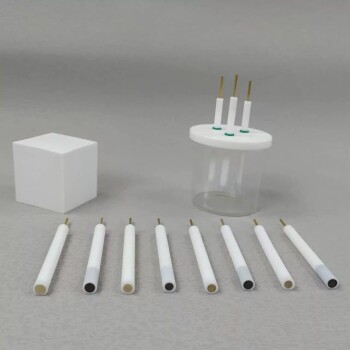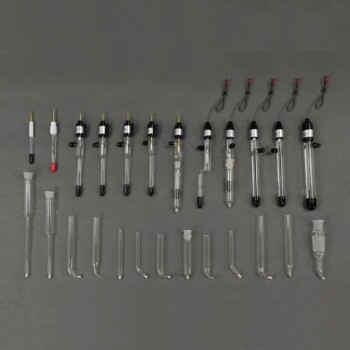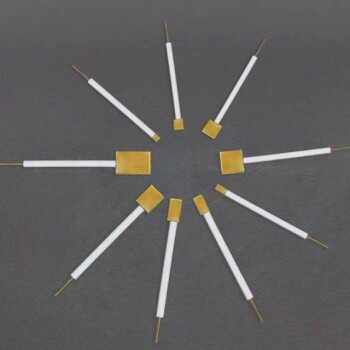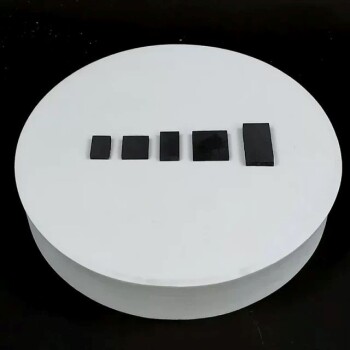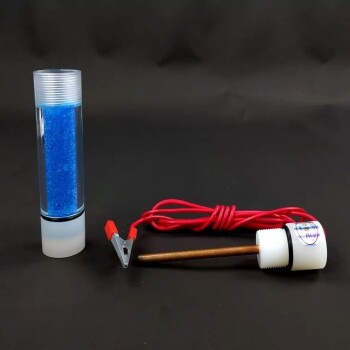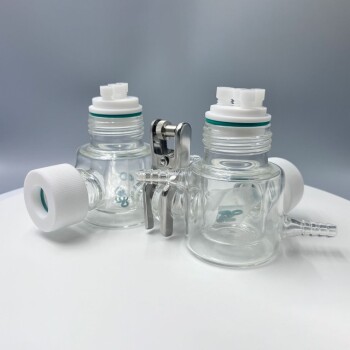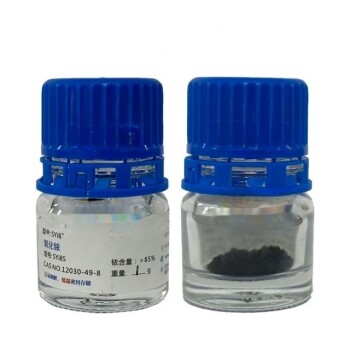In short, Platinum-Titanium Functional Electrodes are used across a wide range of demanding electrochemical applications. Their primary uses include precious metal electroplating, high-speed copper plating for electronics, wastewater treatment, water electrolysis for hydrogen production, electrodialysis, and as stable test electrodes in research.
The core value of this electrode lies in its composite structure. It combines the exceptional corrosion resistance and mechanical strength of a titanium substrate with the superior catalytic activity and electrochemical stability of a thin platinum coating, creating a high-performance, cost-effective solution for aggressive environments.
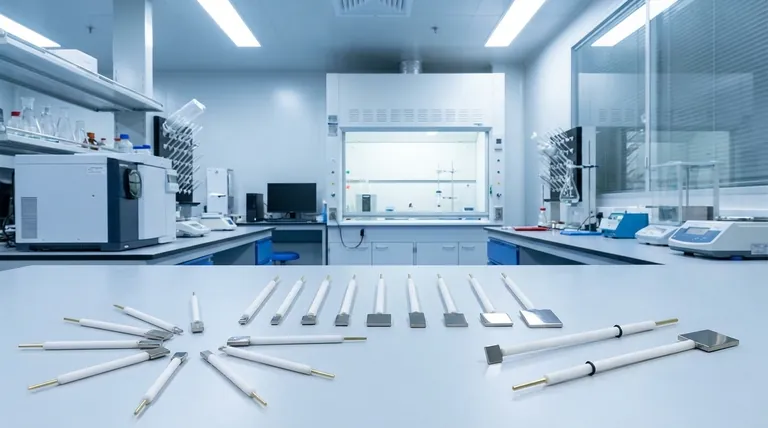
The Core Principle: Why Platinum on Titanium?
This electrode's versatility is not an accident; it is the direct result of a carefully engineered material combination. Understanding the role of each component is key to understanding its applications.
The Role of the Titanium Substrate
Titanium serves as the backbone of the electrode. It provides structural integrity and is known for its remarkable ability to resist corrosion by forming a stable, non-conductive oxide layer. This makes it an ideal, durable base material that won't degrade in most electrolytic solutions.
The Function of the Platinum Coating
While the titanium provides strength, the thin platinum layer (typically 0.3-10μm) provides the critical electrochemical performance. Platinum is a highly active catalyst that facilitates desired reactions while resisting degradation itself, properties that would be prohibitively expensive to achieve with a solid platinum electrode.
Key Properties Driving its Applications
Several distinct characteristics make this electrode suitable for such a diverse set of tasks, from producing hydrogen to plating gold.
High Catalytic Activity
Platinum is an excellent catalyst, meaning it lowers the energy required for a chemical reaction to occur. This is crucial in applications like organic synthesis and efficient electroplating, where it ensures a fast, high-quality process.
Superior Electrochemical Stability
The electrode has a high oxygen evolution potential and a low hydrogen evolution potential. This means it is efficient for processes where you want to produce hydrogen (at the cathode) but resists the competing, and often undesirable, reaction of producing oxygen (at the anode). This dual nature makes it an excellent choice for either role.
Exceptional Corrosion Resistance
The combination of a passivating titanium base and a chemically inert platinum surface results in an electrode that can operate for long periods in highly corrosive environments. This is essential for applications like industrial wastewater treatment and chlorine production.
Suitability for Polarity Reversal
Some electrochemical processes cause build-up or "fouling" on an electrode's surface, reducing its efficiency. These electrodes are robust enough to handle polarity reversal, where the direction of the current is periodically flipped to clean the electrode surfaces, extending their operational life.
Understanding the Trade-offs
While highly effective, the Platinum-Titanium electrode is not a universal solution. Understanding its limitations is critical for proper application.
Cost vs. Performance
This is not the cheapest electrode option available. It represents a balance between the high cost of solid platinum and the lower performance of other materials like graphite or mixed metal oxides (MMO). Its use is justified when performance and longevity are paramount.
The Integrity of the Coating
The electrode's function is entirely dependent on the thin platinum layer. Physical scratching, abrasion, or operating outside of its specified current density (< 20000A/m²) can damage the coating. A breach in the platinum can expose the titanium, which may then passivate (form an insulating oxide layer) and cause electrode failure.
Making the Right Choice for Your Process
Your specific goal determines whether this electrode is the optimal choice.
- If your primary focus is high-value electroplating (gold, silver, platinum): The electrode's efficiency and ability to produce a uniform, high-quality deposit make it an industry standard.
- If your primary focus is water treatment in harsh conditions: Its exceptional corrosion resistance and longevity provide a reliable solution for breaking down persistent organic pollutants.
- If your primary focus is efficient hydrogen production: Its low hydrogen evolution potential makes it a top-tier cathode material for water electrolysis.
- If your primary focus is research and development: Its stability and predictable performance make it an excellent and reliable test electrode for electrochemical experiments.
Ultimately, the Platinum-Titanium electrode empowers demanding electrochemical processes by providing catalytic performance without the prohibitive expense of a solid platinum component.
Summary Table:
| Application Area | Key Benefit of Pt-Ti Electrode |
|---|---|
| Precious Metal Electroplating | High catalytic activity for uniform, high-quality deposits |
| High-Speed Copper Plating | Superior electrochemical stability and efficiency |
| Wastewater Treatment | Exceptional corrosion resistance in harsh environments |
| Water Electrolysis (Hydrogen) | Low hydrogen evolution potential for efficient production |
| Electrodialysis | Durability and suitability for polarity reversal |
| Research & Development | Stable, predictable performance as a test electrode |
Ready to enhance your electrochemical processes with reliable, high-performance electrodes? KINTEK specializes in premium lab equipment and consumables, including durable Platinum-Titanium electrodes designed for demanding applications like electroplating, water treatment, and hydrogen production. Our solutions offer superior catalytic activity, corrosion resistance, and longevity—empowering your lab to achieve precise, efficient results. Contact us today to discuss your specific needs and discover how our expertise can support your success!
Visual Guide

Related Products
- Platinum Sheet Electrode for Laboratory and Industrial Applications
- Rotating Platinum Disk Electrode for Electrochemical Applications
- Platinum Auxiliary Electrode for Laboratory Use
- Metal Disc Electrode Electrochemical Electrode
- Gold Disc Electrode
People Also Ask
- What are the key performance characteristics and applications of platinum sheets? Unmatched Reliability for Demanding Applications
- How should a platinum sheet electrode be operated during an experiment? Ensure Accurate and Reproducible Results
- How should a platinum sheet electrode be pretreated before use? Ensure Accurate Electrochemical Measurements
- What are the performance characteristics of platinum sheet electrodes? Unlock Superior Electrochemical Performance
- What is the expected lifespan of a platinum sheet electrode? Maximize Your Electrode's Service Life



